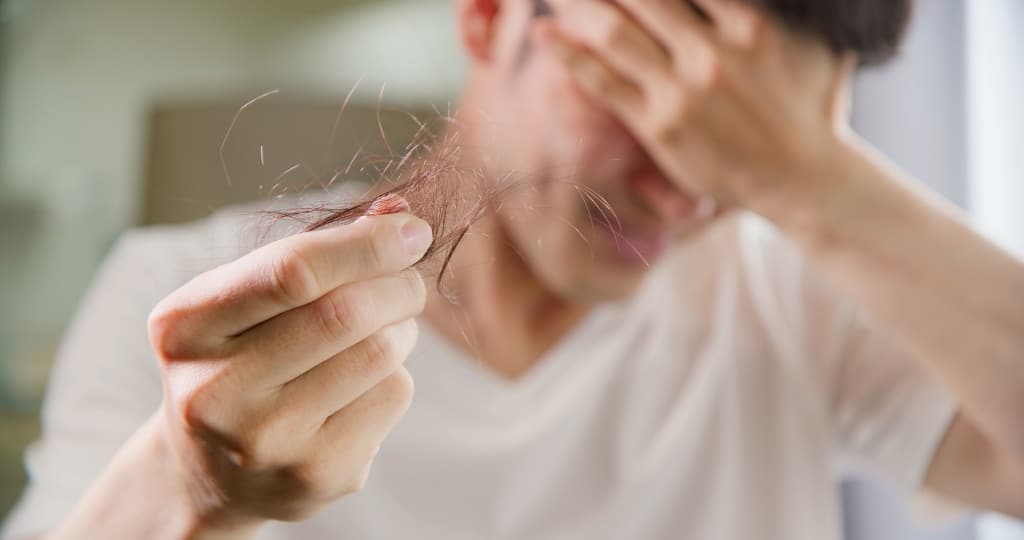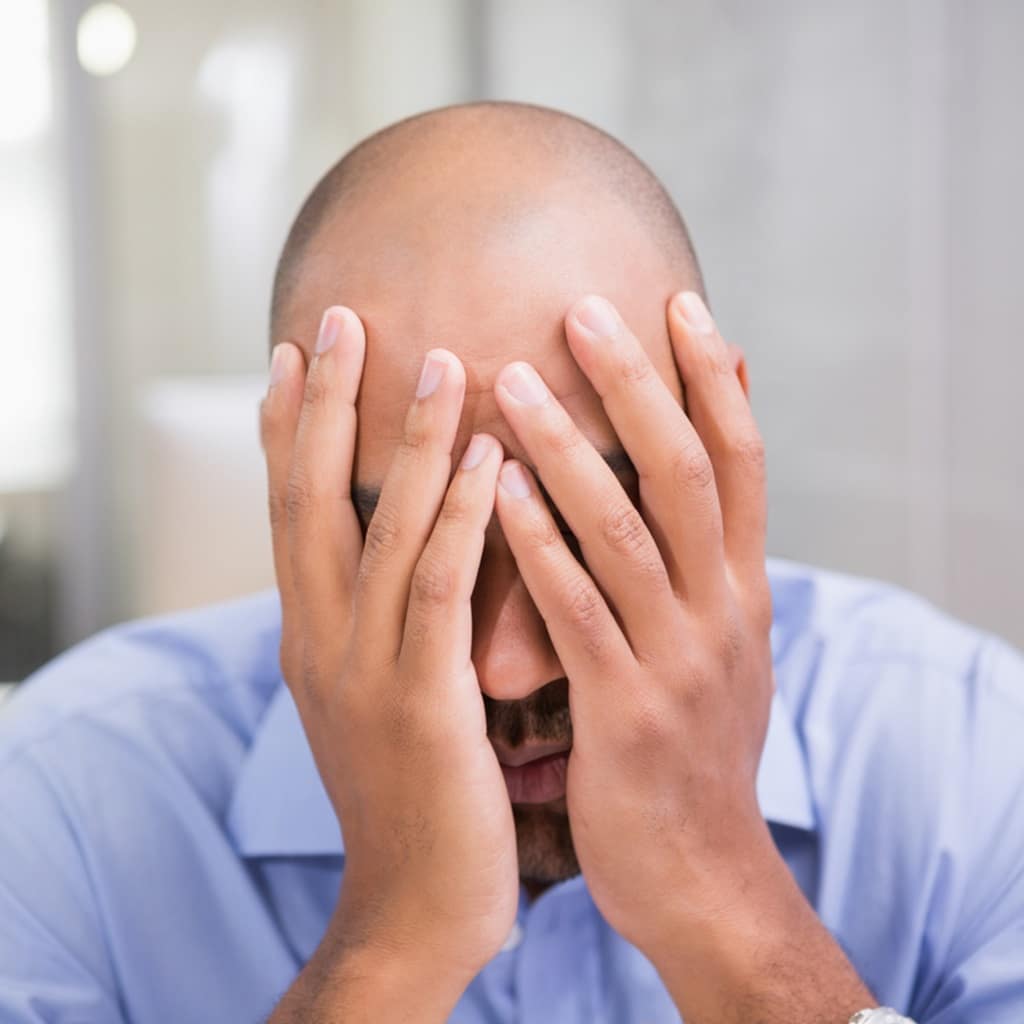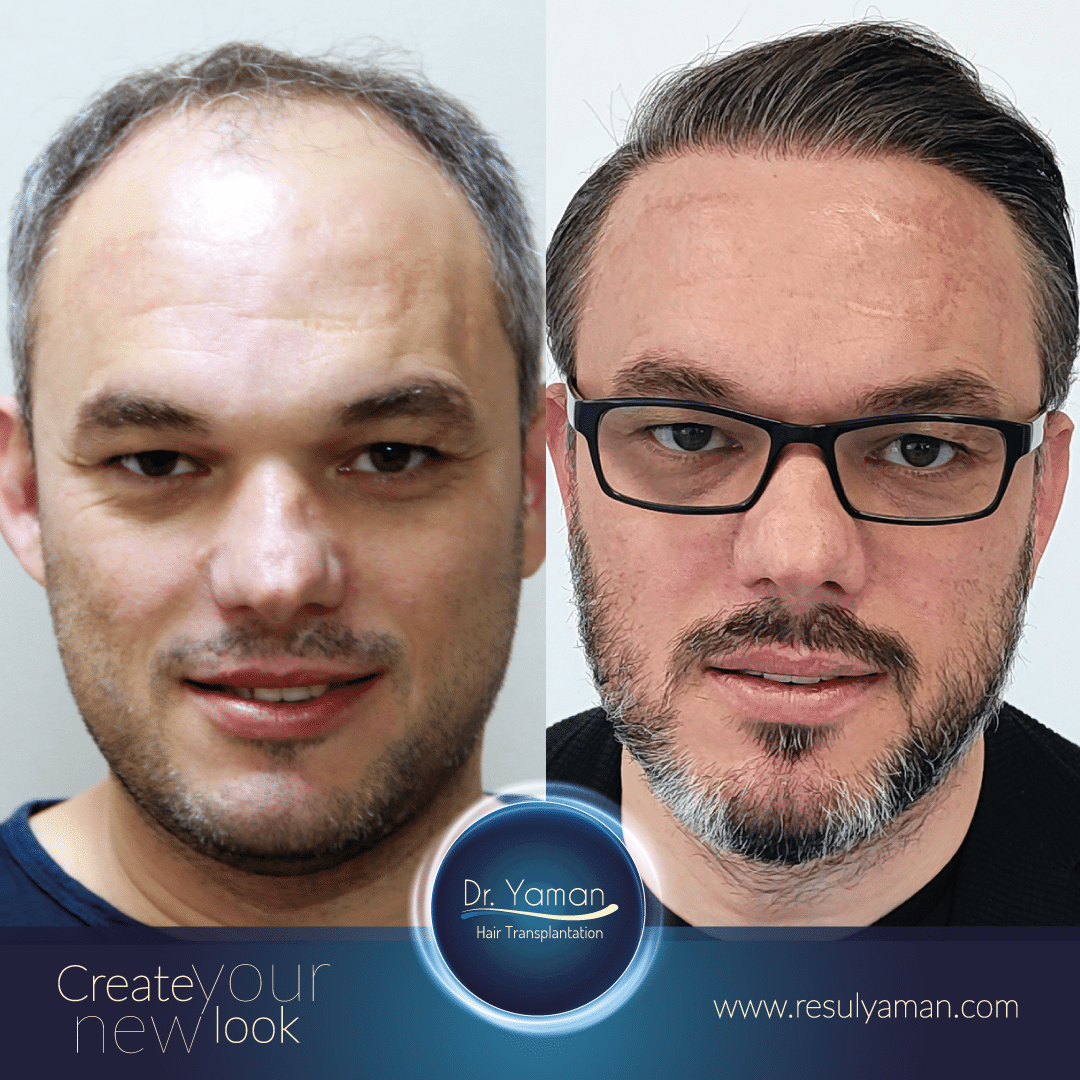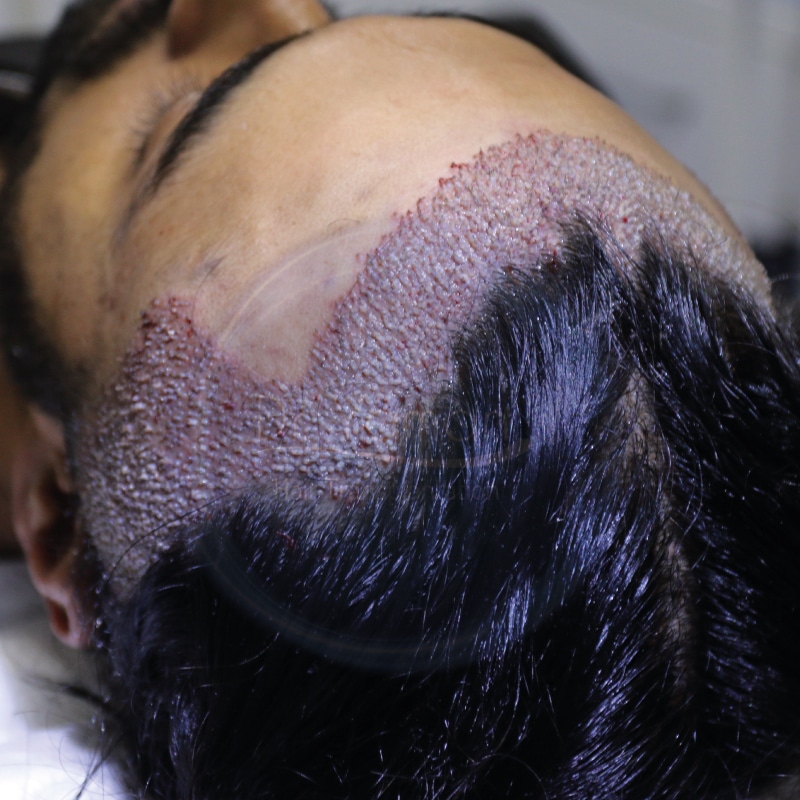I bet that most people have heard of the link between stress and hair loss, similar to the way that most people perceive there is a link between smoking and hair damage. But is hair loss from stress a real thing and if so, what can you do to combat it?
This is what I look at below. I delve into the different stress-related hair loss conditions such as Telogen Effluvium, and how you can try to reduce stress levels and keep your hair looking fantastic.
The Types of Hair Loss Associated With High Stress
Let’s get the basics cleared up first – hair loss from stress is a real thing and there are three main medical conditions related to this topic which I explain below.
Alopecia Areata
This is an autoimmune disease where your immune system attacks your hair follicles much in the same way that your immune system tries to attack a transplanted organ. AA affects both men and women and currently, there is no known cure for it. However, the main trigger is stress so if you can manage your stress levels you can prevent hair loss from this condition.
Trichotillomania
Lovingly known as the hair-pulling disorder, Trichotillomania is an impulse control disorder where you experience a desire to pull your hair out from your scalp and other areas of your body. While this can happen subconsciously, the desire can also be triggered by increased stress levels.
Telogen Effluvium
TE is the second most common type of hair loss and can happen to both men and women of any age. It results in a change in the number of hair follicles that are growing on your scalp. Depending on when this happens during the typical growth cycle of your hair, it can result in hair loss. Usually, the hair loss is patchy, especially on the center of your scalp. The damage isn’t permanent, but the condition can be triggered by excessive stress levels.
How to Reduce the Chances of Stress-Related Hair Loss
Don’t be disheartened by the above! Yes, hair loss from stress is real, but there are preventative measures you can take both naturally and medicinally to combat these conditions.
Maintaining a balanced diet
Eating and drinking a balanced diet is key to stress levels and reducing the chance of occurrences of these conditions. Ideally, you should intake a healthy balance of minerals and nutrients with an emphasis on Vitamin C, Vitamin B, and Vitamin E. Together with these vitamins and nutrients, make sure that your fluid intake is consistent and that you aim for around 8 glasses of water per day.
Learn stress management techniques

Temporary treatments
Lastly, if stress management isn’t working, there are temporary treatments you can take both over-the-counter and as prescriptions to promote hair growth. An example of OTC treatment is Minoxidill which is used to promote hair growth. Prescription drugs can include Prednisone which are sometimes combined with other topical treatments.
What to do if the Condition Persists?
Usually, stress-related hair loss is temporary and once you improve your situation, it should stop with no lasting damage.
However, it’s not always possible to do this, and conditions like Alopecia Areata and Trichotillomania may require medical intervention. If you feel like you are making no progress and are struggling to manage your stress levels, get help. Don’t sit in silence – whether you make a doctor’s appointment or a meeting with a psychologist there is an outlet and a way to beat your stress management.
If you have suffered major damage to your hair you can also look at our hair transplant clinic and the range of treatments available for hair restoration such as hair transplants. By understanding natural hair restoration, you can see that even if stress has damaged your hair, there is a way to undo the harm.
Hair Loss from Stress is Real but can be Managed and Avoided
Hair loss from stress is a real thing with the main condition being Telogen Effluvium. The great news is, is that most hair loss conditions from stress aren’t permanent and in most instances, it’s a case of managing your well-being, mental health, and diet.
I get that this is often easier said than done though as mental health issues are a real concern and in instances like these where you are struggling to manage your stress, seeking professional assistance is the best course of action.
 WhatsApp
WhatsApp Get Mail!
Get Mail!
 English
English Italiano
Italiano Español
Español Türkçe
Türkçe Português
Português Français
Français Deutsch
Deutsch عربي
عربي



